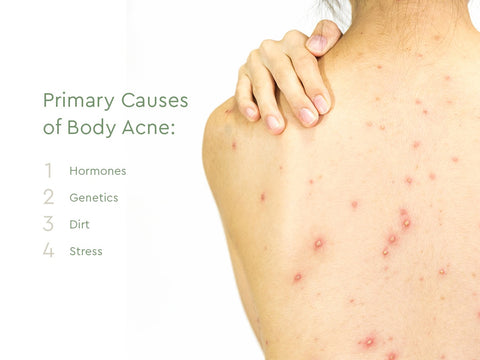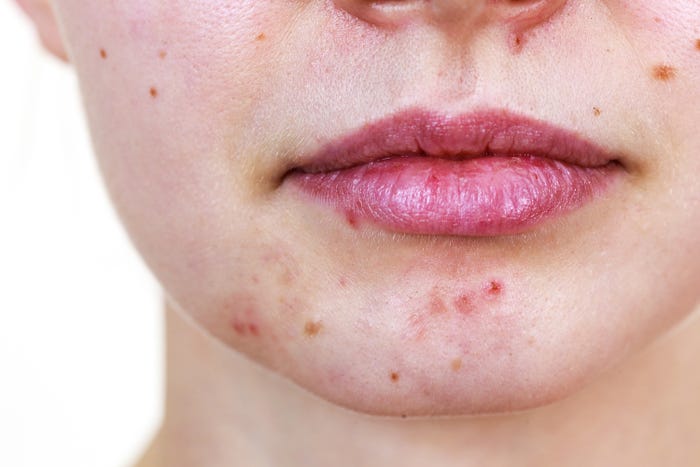
When you have acne, the skin is blocked by a plug that is made of sebum, which is produced by the sebaceous glands. The oil is made by these glands to help keep your skin lubricated. This plug is often created when sebum is too thick or trapped in the pore. When the pores become blocked, bacteria called Cutibacterium acnes begin to grow and cause inflammation. This process can be very painful for both men and women.
There are several causes of acne, and the first one is clogged pores. The bacteria that live in the clogged pores clog them. When these oil glands become clogged, it leads to inflammation and the formation of pimples, blackheads, and whiteheads. Ultimately, this leads to the formation of cysts and nodules. While the condition can be embarrassing, it is treatable. There are various acne medications and products available to treat the condition.
A plugged follicle is the first step in the development of acne. When your pores get clogged, bacteria can build up inside. This clog will lead to the development of acne. Several causes of clogged pores have been identified. Among these are dirt and bacteria from your environment, as well as pollution and humidity. These things can irritate the skin and trigger acne breakouts. Changing your pillowcases and sheets at least once a week can prevent acne breakouts from occurring. Antibiotics also help fight bacterial infections, but are usually used only for short periods of time.
Nodules are caused by clogged pores that open deep in the skin. These are infected lumps or cysts that are larger than pimples. If you have a large cyst that looks like acne, it might be a boil that is caused by a staph infection. Fortunately, there are several other ways to reduce the risk of severe acne, including washing your face with a gentle soap daily.
The biggest cause of acne is the presence of dirt and bacteria in the environment. This can lead to acne. People with this disease should avoid dirt and bacteria in the environment. The first step is to keep the environment clean. The dirt and oil that is in their environment accumulates in their pores over time. If you don’t wash your pillowcases or sheets daily, your skin will remain dry. You can also use a sulfate-free shampoo.

The main cause of acne is a bacterial infection. If bacteria clog the follicles, they become clogged with sebum. This can lead to severe acne, which is an inflammatory condition. You should seek medical attention at https://phuketbulletin.co.th/
if you suspect you have an infection, as this can lead to serious side effects. A healthcare professional will be able to properly diagnose acne by examining your skin and taking into account your age, general health, and acne severity.
Acne is caused by a blocked hair follicle. The sebaceous glands on the skin are tiny and attached to hair follicles. These glands produce oil that lubricates the skin and hair. When these glands are overloaded, excess sebum mixes with dead skin cells and forms a plug in the hair follicle. When this happens, acne develops.
The clogged hair follicles are the primary source of acne. When the follicles get clogged, the bacteria cause the inflammation and resulting pimples. There are several types of acne, from inflammatory papules and nodules to cysts. Depending on the severity of your acne, a treatment will depend on the type of acne. Generally, a treatment for mild acne will include topical creams and cleansers that help prevent oil buildup on the skin.
Chronic stress can also cause acne because it can disrupt normal bodily processes. Stress can cause the skin to become inflamed and irritated, and the inflammation can be difficult to treat. In addition, many myths about the causes of acne are untrue, preventing people from seeking treatment and resulting in an even worse situation. However, it is important to remember that acne is not contagious, and it is not inherited.